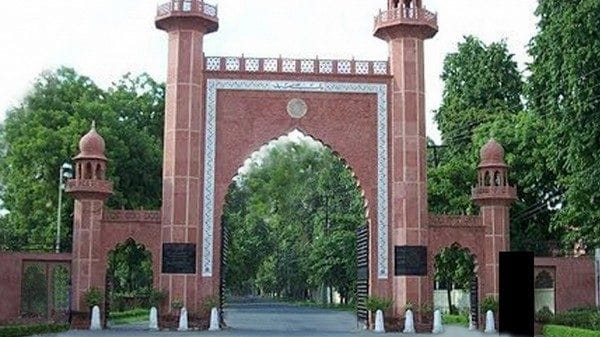New Delhi: Has the central government “taken cognisance of the fact that a book by Pakistani author (sic) is being taught at Aligarh Muslim University, Jamia Millia Islamia or any other educational institution in the country and the language is derogatory to Indian citizens and also supports terrorism”.
This question — put forth by Uttar Pradesh BJP MP Harnath Singh Yadav, who has sought an answer from the Education Ministry in Parliament — has drawn condemnation by over 250 academics and scholars who are or have been affiliated with Indian institutions of higher education.
The question has been listed in the Rajya Sabha for 22 March. In the question, Yadav has also sought to know “whether the government would consider to scrutinise the contents of textbooks written by the said Pakistani author and take action against the persons responsible for the same”.
In a statement, the academics and scholars have expressed concern about the language of the question.
For one, they have argued that “leaving the book unnamed allows the question to be read as suggesting that any book by any Pakistani author might possibly be read as being ‘derogatory to Indian citizens’ and ‘supporting terrorism’”.
Attempts to “continually link central universities with identifiably Muslim associations, such as Aligarh Muslim University and Jamia Millia Islamia, with ‘terrorism’, must be resisted in every possible way”, they add.
“Not doing so will only endanger our own lives, the lives of our children, and, perhaps more importantly, the very possibility of a future world in which difference and equality may coexist,” the statement reads.
The signatories include Romila Thapar, Professor Emerita at Jawaharlal Nehru University (JNU), Nandita Narain of St. Stephen’s College, Partha Chatterjee, honorary professor at Kolkata’s Centre for Studies in Social Sciences, Delhi University professor Apoorvanand, and JNU professor Ayesha Kidwai.
The other signatories have been associated with IIT-Delhi, IIT-Bombay, University of Hyderabad, Tata Institute of Social Sciences, Azim Premji University, Jamia Millia Islamia, University of Mumbai, and Pondicherry University.
On 16 March, the University Grants Commission (UGC) had written to registrars of all central universities requesting them to furnish information on the question.
The signatories have called the question a “punitive threat”, adding that it is not professors who decide the books to be taught in the curriculum.
“…It is more often the case that syllabi are made, especially in the humanities and the social sciences, to expose students to varied historical and cultural perspectives,” the statement adds.
Also Read: AMU can be Indian National University, not remain Allah Miyan’s University in Ashraaf hands
‘Disturbing question’
Speaking to ThePrint, some professors said they were still unaware of the book and author in question.
Professor Abha Dev Habib of Miranda College in Delhi University, who is among the signatories, said raising a question of this nature takes parliamentary discourse away from the issues of academics and students.
“This question being raised in the Rajya Sabha is not only disturbing but also points towards a structural attack on central universities in the country. Such questions promote the idea of censorship,” she added.
“This shows that the progress in our country is retarded.”
Another signatory — who is from JNU but didn’t want to be named in this report — added, “The vagueness of the question and the kind of consequences it stands to have are a matter of concern.”
AMU faced a row last year as well
In July 2022, AMU found itself in a controversy after two books in the Islamic Studies Department by acclaimed Islamic scholars — Pakistan’s Maulana Abul Ala Maududi and Syed Qutb of Egypt — were flagged for allegedly “objectionable” content.
On 27 July, 25 academicians wrote an open letter addressed to Prime Minister Narendra Modi, which said that AMU had an “anti-Indic/anti-national course curriculum” as part of its Islamic Studies course.
AMU claimed that there was nothing objectionable about the content of the texts, and that they had been taught in the university for 50 years.
However, 4 days later, AMU dropped the two works.
(Edited by Sunanda Ranjan)
Also Read: ‘Muslim’ in AMU doesn’t make the university anti-national, just like ‘Hindu’ in BHU doesn’t






